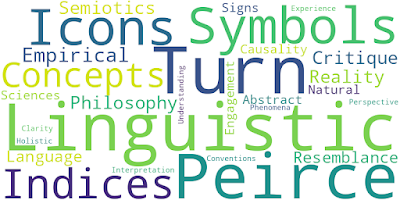Peirce's Semiotics: The Power of Signs in Enoch, Elijah, and Holmes

Introduction Charles Sanders Peirce's work has significantly influenced philosophy, logic, and linguistics, particularly through his exploration of how different types of signs shape human thought and communication. In his essay What is a Sign? , he discusses three categories of signs—icons, indices, and symbols—and illustrates their interplay using a biblical story. This article aims to analyze his sign typology through this example and assess its limitations. Specifically, it critiques the biblical illustration for being overly language-centered, which can make it difficult for students to understand. As an alternative, the article proposes using the investigative work of detectives like Sherlock Holmes, offering a more tangible and relatable example of how icons, indices, and symbols interact. This shift can help make Peirce's ideas more accessible to those new to semiotic concepts. Overview of Peirce’s Theory of Signs Peirce's theory of signs categorizes them into...

